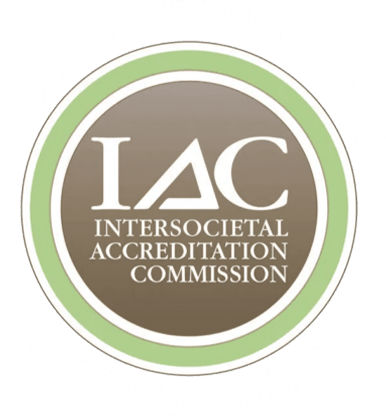
If you suffer from varicose veins, you’ve no doubt heard of the two most common treatments available nationwide – sclerotherapy and endovenous ablation. But which is best for you? If you’re seeking relief, know that there are distinct differences between these two treatment options.
Size of the Vein Issue:
- Liquid or foam sclerotherapy typically is used to treat spider veins and small varicose veins.
- If you have mid-sized or large varicose veins, you may need endovenous ablation.
Procedural Differences in Vein Treatments:
The two treatments are administered very differently.
- Sclerotherapy involves injecting a medication into affected veins, causing the vein wall to shrink, collapse and eventually fade away. Sclerotherapy may use a liquid or foam sclerant.
- Endovenous ablation uses heat energy delivered via a laser fiber or special catheter inserted into an affected vein. This heat energy also causes the vein to collapse and ultimately disappear.
Cost Differences in Vein Treatments:
Sclerotherapy typically costs less than endovenous ablation.
Several sclerotherapy sessions may be necessary to achieve optimal results. However, there may be larger veins that need treatment with endovenous ablation. These veins are deeper under the skin and need to be evaluated by ultrasound. Many patients need a combination of both therapies for complete and lasting benefit.
The only way to know which treatment option is truly best for your unique case is to visit an experienced vein specialist. Call 904.901.6575 to schedule a consultation with The Vein Institute at Jacksonville today.
Frequently Asked Questions

IAC Accredited Vascular Testing
We are proud to be distinguished as an IAC Accredited Vascular Testing Facility. The Vein Institute adheres to the strictest national guidelines for vascular testing, demonstrating a commitment to the highest quality patient care.
Known as CVI, chronic venous insufficiency, is a medical condition in which the veins are unable to pump enough oxygen-poor blood back to the heart. It’s caused by damaged blood valves and often occurs after deep vein thrombosis or phlebitis. While women make up the majority of CVI sufferers, it’s also common among men who […]
Education is key to maintaining lifelong vascular health at The Vein Institute of Jacksonville. One of the most common questions we hear from patients is whether genetics can predict their risk for developing Chronic Venous Insufficiency (CVI). Let’s explore the connection between family history, vein disease, and the steps to stay ahead of symptoms. What […]
Chronic venous insufficiency is a condition that affects millions of people around the world, and yet it often goes unrecognized. In this article, we’ll discuss what chronic venous insufficiency is, what its symptoms are, and why it’s important to seek medical help if you think you may be suffering from it. Let’s get started! Introduction […]




